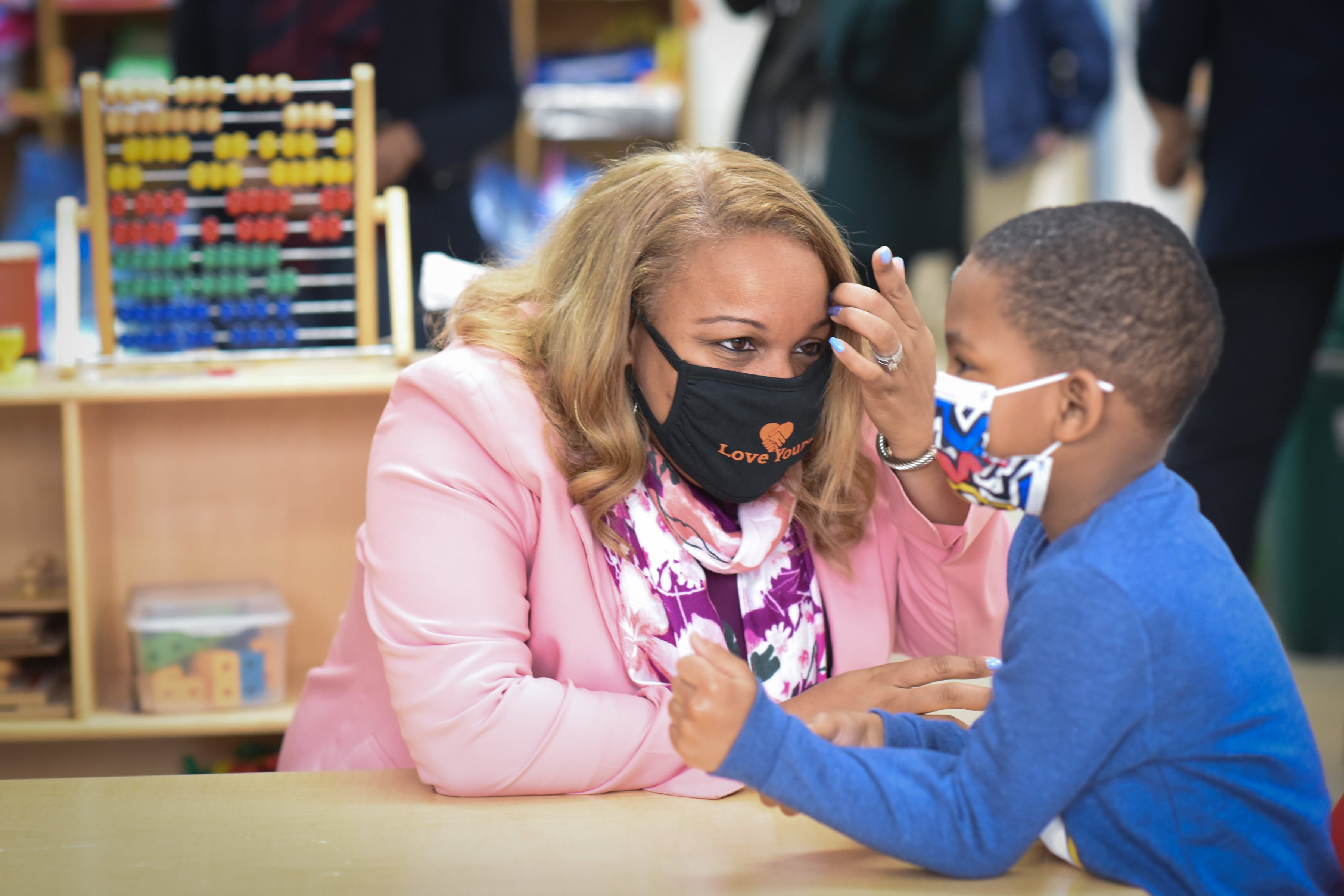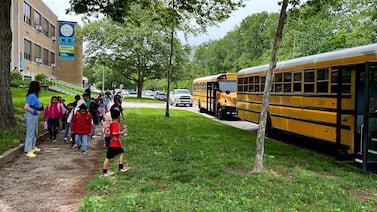The education department is launching a training program next month for parents, paying them $500 to become “wellness ambassadors” addressing mental health needs in their school communities.
The initiative will pay the stipend to parent leaders from roughly 950 schools in neighborhoods hardest hit by the coronavirus, according to Adrienne Austin, an acting deputy chancellor who oversees parent outreach. She revealed a “sneak peek” of the plan Thursday to members of the Chancellor’s Parent Advisory Council.
“We’re looking to support parent leaders in those schools to become ambassadors for wellness,” Austin told parents.
The mental health toll on the nation’s largest school system this year has been enormous. Many families have suffered from job losses, increased food insecurity, and the death of loved ones. Parents have had to make difficult decisions about whether to send their children back to school buildings or keep them home full time. More than 70% of children opted to learn exclusively from home, but many of those who returned to buildings did so part time or experienced frequent shutdowns because of positive coronavirus cases.
Parents have also had to juggle jobs on top of supervising remote instruction or scramble to find child care. Children have struggled with the isolation that comes with virtual learning and a dearth of opportunities to socialize.
With many of those issues in mind, city officials have pledged to make mental health a priority for the coming school year including expanding the number of schools that partner with community organizations, hiring additional social workers, and conducting mental health screening when students return.
The new parent-facing program hinges on peer-to-peer support. Parent association leaders will be responsible for participating or selecting another parent to complete a four-part training between May and August focused on “trauma-informed, healing-centered care.” In the fall, those parents will be expected to work with their schools to lead family-facing sessions, officials said.
“Students thrive when teachers and families work together, and this innovative initiative will bring our parent leaders into the mental health conversation and help amplify the important social-emotional work happening in schools,” education department spokesperson Nathaniel Styer said in a statement. “Whether in schools or at home, we want caring adults to have the tools to support our young people when they are in crisis.”
Education department officials did not say how much the program will cost, but noted it will be fully funded by private dollars from the Robin Hood, Gray, and Tiger Foundations.
Rasheedah Harris, a parent leader who helped develop a detailed proposal to address trauma and create more supportive school environments in the Bronx, said she sees value in involving parents in discussions about mental health. But she worries that parents like her, who have already been working with the education department on school climate and mental health issues, have not been sufficiently consulted.
“A parent ambassador just sounds like they’re selecting a parent to do what? I’m not quite sure,” she said. “It doesn’t work if there’s no true community engagement and true community relations and understanding what families and school communities need.”
Harris said she is eager to learn more about how the program will work, but noted it could be difficult to lean on parent leaders to provide mental health support at schools that don’t already have strong parent associations or other systems for involving parents.
“It’s hard to do on this scale as fast as they want to roll out,” Harris added. “It’s something that we don’t want to fail at.”





